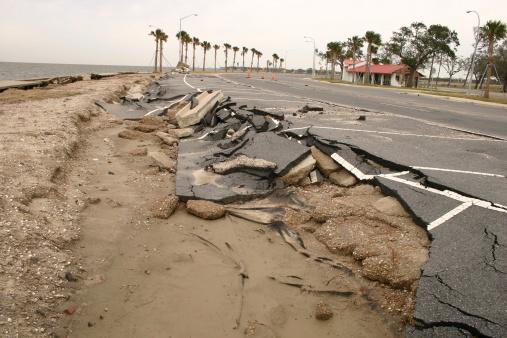
Official from oversight agency recommends greater effort to protect federal facilities from climate change damage.
Hurricane Sandy, widely linked to climate change, caused an estimated $65 billion worth of property damage, including to federal facilities and infrastructure located along the coastline. What steps can the federal government take to minimize similar damage that climate change could cause to other infrastructure and facilities?
An official from the U.S. Government Accountability Office (GAO) recently testified before Congress on ways that the government could reduce federal expenses from weather damage associated with climate change.
Alfredo Gomez, the director of the GAO’s Natural Resources and Environment division, identified particularly vulnerable infrastructure and facilities, including about 555,000 facilities and 28 million acres of land belonging to the U.S. Department of Defense (DOD). These DOD facilities and infrastructure, worth approximately $850 billion, are spread globally and are subject to various climate change challenges, ranging from Alaskan wildfires to extreme rainfall in the Southwest.
The GAO has also identified other government agencies with vulnerable facilities, such as the National Aeronautics and Space Administration, which owns $32 billion worth of buildings in coastal areas.
Federal lands were also cited as vulnerable to the effects of climate change. The federal government manages natural resources on about 650 million acres of land, which is about 30 percent of the land in the United States.
Even with better knowledge about climate change, federal agencies have often struggled to incorporate climate change policies in their daily functions. The GAO has noticed a similar trend with state and local agencies, finding that they have not systemically incorporated risks from climate change into their planning for roads, bridges, and wastewater systems.
The GAO recommends that the federal government provide better access to climate information, provide officials with greater technical assistance, and encourage government officials at all levels to consider climate change when planning projects.
Gomez also noted how President Obama’s Climate Action Plan and Executive Order 13653 have highlighted the need for federal agencies to give climate change greater attention.
Gomez’s testimony before the Senate budget committee on July 29, 2014 was part of a longer-term effort by the GAO to address governmental adaption to climate change. The GAO considers climate change response as a key issue for the government and has released a variety of reports about how climate change could affect various aspects of government.



